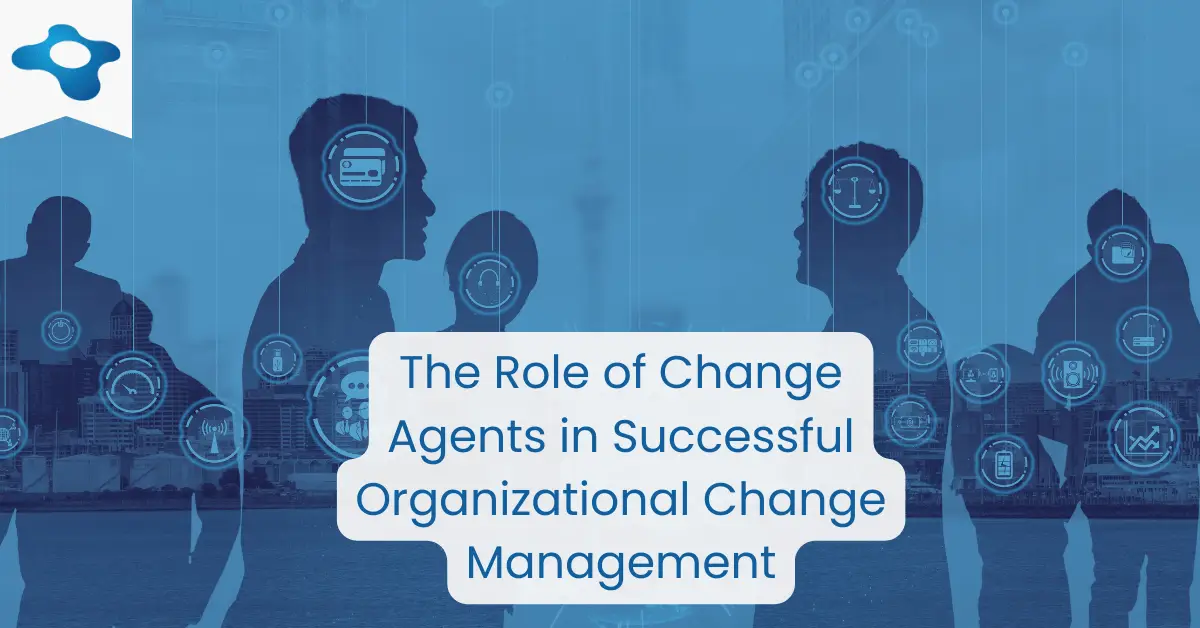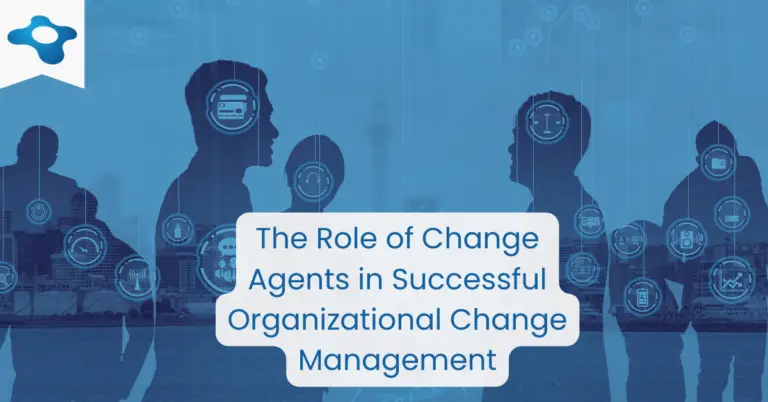Key Takeaways
- Change agents are integral to successful organizational change, acting as catalysts, facilitators, and influencers in driving and sustaining transformation.
- Leveraging both internal and external change agents can foster a more adaptable and resilient change culture, as they bring unique perspectives, skills, and experiences to the table.
- Identifying and empowering change agents within your organization helps to mitigate resistance, enhance collaboration, and streamline the change management process.
Change agents play a vital role in driving successful organizational transformations. As catalysts for change, these individuals possess the necessary skills, knowledge, and influence to facilitate the implementation of new strategies and initiatives. As companies navigate the complexities of today’s business environment, the significance of change agents cannot be overstated.
In this article, we will explore the importance of change agents in successful change management, discussing how to identify, train, and support these key individuals within an organization. We will delve into the various aspects of building a change agent network, including assessing network requirements, designing and delivering training programs, coordinating ongoing activities, and evaluating network effectiveness.
With a focus on the benefits of a strong change agent network, this article will also examine the risks of ignoring this crucial component of the change management process. Armed with this knowledge, readers will be better prepared to foster a culture of change and achieve their organizational objectives.
Assess Change Agent Network Requirements
Before establishing a change agent network, it is crucial to assess the specific requirements needed for effective change management within the organization.
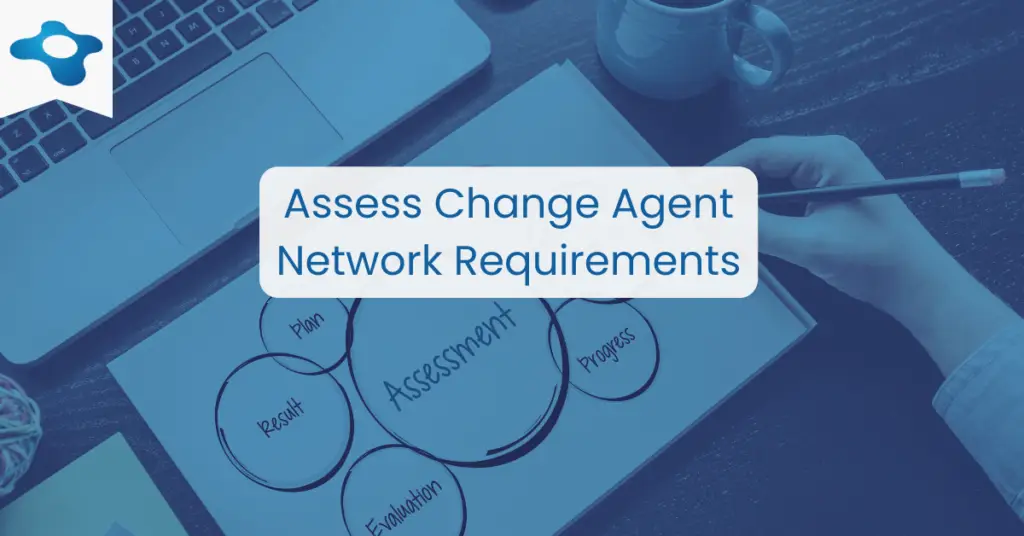
This process involves three key steps:
1. Identifying the necessary skills and competencies for change agents
Change agents should possess a diverse set of skills and competencies to successfully drive change initiatives. These may include strong communication and interpersonal skills, problem-solving abilities, adaptability, and an aptitude for strategic thinking.
Familiarity with various change management models and methodologies can also prove beneficial in tailoring the approach to the organization’s unique context.
2. Determining the size and scope of the change agent network
The size and scope of the change agent network should align with the organization’s needs and the complexity of the change initiatives being implemented. This may involve identifying the number of change agents required, their roles and responsibilities, and the specific areas or departments they will support.
In some cases, it may be necessary to establish a hierarchical structure, with change agents at different levels working together to facilitate change across the organization.
3. Evaluating the existing change management infrastructure in the organization
An assessment of the organization’s existing change management infrastructure can help determine the gaps and areas for improvement. This may involve reviewing the organization’s previous change initiatives, assessing the effectiveness of its communication channels, and evaluating the level of support from senior leadership.
By identifying these areas, organizations can strategically allocate resources and tailor their approach to building a robust change agent network, ultimately enhancing the success of their change management process.
Design and Deliver Change Agent Network Training
Once the change agent network requirements have been assessed, the next step is to design and deliver an effective training program. This is crucial for equipping change agents with the necessary skills and knowledge to drive successful change initiatives within the organization.

1. Key elements of an effective change agent training program
An effective change agent training program should cover various aspects of the change management process, such as the organization’s chosen change management models and methodologies, as well as the tools and templates available to support the change efforts.
Training should also focus on developing essential change agent skills, such as communication, collaboration, and problem-solving.
2. Tailoring the training program to meet the specific needs of the organization
To maximize the effectiveness of the training program, it should be tailored to the specific needs and context of the organization. This may involve customizing the content to reflect the organization’s culture, values, and strategic objectives.
Additionally, the training should address any identified gaps in the organization’s change management infrastructure and provide guidance on how change agents can effectively support the change management process.
3. The role of the Change Agent Network Material in supporting training efforts
The Change Agent Network Material can play a vital role in supporting the training efforts by providing comprehensive resources and tools for change agents. These materials may include guidelines on change agent roles and responsibilities, step-by-step guides for implementing change management processes, and resources for facilitating stakeholder engagement and communication.
By leveraging these materials, organizations can ensure that their change agents are well-prepared to drive change initiatives and contribute to the overall success of the change management process.
Coordinate Ongoing Change Agent Network Activities
A well-coordinated change agent network is essential for ensuring the success of change initiatives. Effective coordination involves establishing clear roles and responsibilities, facilitating communication and collaboration, and utilizing a comprehensive Change Agent Network Plan.
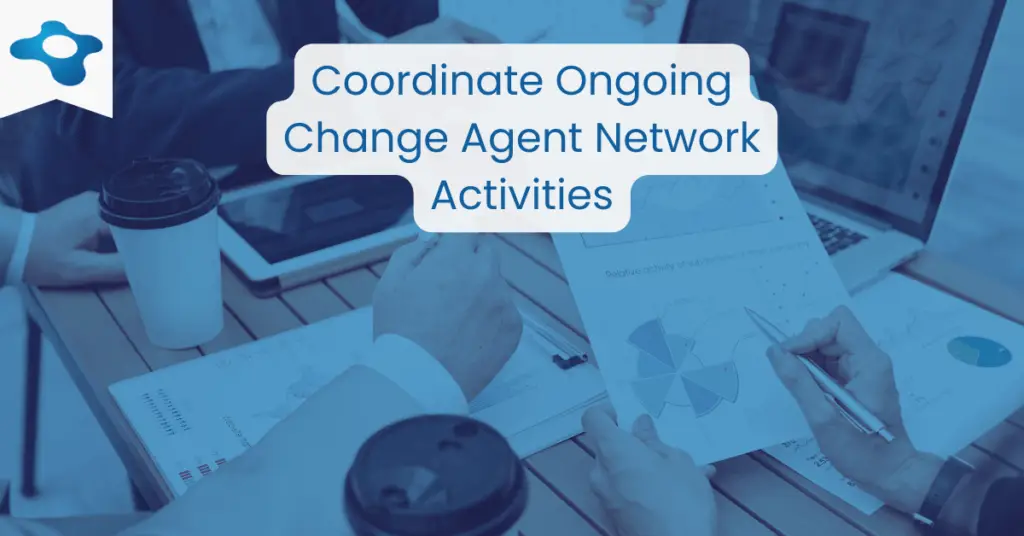
1. Establishing clear roles and responsibilities for change agents
Change agents should have clearly defined roles and responsibilities that align with the organization’s change management process. This can be achieved by developing a Change Agent Roles and Responsibilities document, which outlines the expectations, accountabilities, and key activities for each change agent.
This document serves as a valuable reference and helps to clarify the contributions that change agents are expected to make throughout the change process.
2. Facilitating communication and collaboration within the network
Effective communication and collaboration within the change agent network are crucial for ensuring the successful implementation of change initiatives. Regular meetings, workshops, and virtual collaboration platforms can be used to share information, discuss progress, and address any challenges or obstacles that may arise.
By fostering a collaborative environment, change agents can work together more effectively and efficiently to drive change.
3. Utilizing the Change Agent Network Plan to guide activities
The Change Agent Network Plan is a vital tool for guiding the activities of the change agent network. This plan should outline the network’s objectives, strategies, and tactics, as well as the resources and support required for successful implementation.
By utilizing the Change Agent Network Plan, change agents can ensure that their activities are aligned with the organization’s change management process and that they are working towards common goals.
Evaluate the Effectiveness of a Change Agent Network
To ensure the ongoing success of the change agent network, it is important to regularly evaluate its effectiveness. This involves using key performance indicators, reviewing and refining the network, and incorporating feedback and learning from experience.
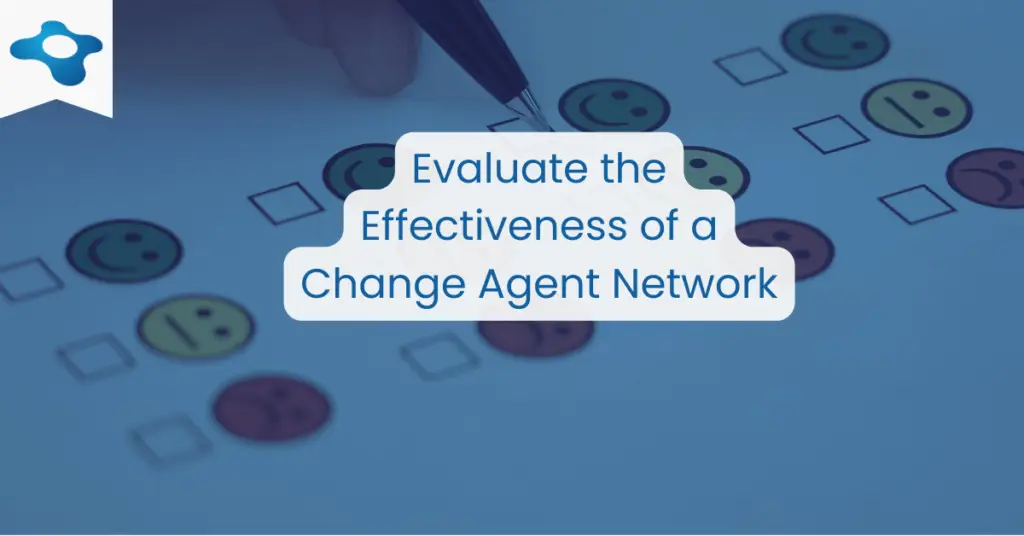
1. Key performance indicators for measuring change agent performance
Key performance indicators (KPIs) can be used to measure the performance of change agents and the overall effectiveness of the change agent network. These KPIs may include metrics related to stakeholder engagement, communication effectiveness, and the successful implementation of change initiatives.
By tracking these KPIs, organizations can identify areas of strength and opportunities for improvement within the change agent network.
2. Regularly reviewing and refining the change agent network
Organizations should periodically review and refine their change agent network to ensure its continued effectiveness. This may involve adjusting the size or scope of the network, updating training programs, or revising roles and responsibilities.
By regularly reviewing and refining the change agent network, organizations can ensure that it remains agile and responsive to the evolving needs of the business.
3. The importance of feedback and learning from experience
Feedback and learning from experience are crucial components of the evaluation process. Change agents should be encouraged to share their experiences, challenges, and successes, as well as any insights gained throughout the change management process. This feedback can be used to inform improvements to the change agent network and to foster a culture of continuous learning and growth.
By incorporating feedback and learning from experience, organizations can enhance the overall effectiveness of their change agent network and better support the successful implementation of change initiatives.
Change Agent Network: Benefits if Used
A robust change agent network can offer significant benefits to organizations undergoing change. These benefits include enhanced stakeholder engagement, improved implementation and adoption of change initiatives, and numerous case studies that showcase the impact of a strong change agent network.

a. Enhanced stakeholder engagement and communication effectiveness
A well-organized and effective change agent network can lead to enhanced stakeholder engagement and communication effectiveness.
By having change agents who can bridge the gap between leadership and impacted stakeholders, organizations can ensure that communication flows smoothly, and stakeholders feel heard and supported throughout the change management process.
b. Improved implementation and adoption of change initiatives
A strong change agent network can facilitate the successful implementation and adoption of change initiatives. Change agents play a critical role in managing resistance, promoting buy-in, and ensuring that new processes or systems are effectively integrated into the organization.
As a result, organizations with a strong change agent network are better positioned to navigate change and achieve their strategic objectives.
c. Case studies highlighting the impact of a strong change agent network
Numerous case studies demonstrate the value of a strong change agent network in driving successful change initiatives. For example, organizations that have invested in building and supporting a network of change agents have reported higher success rates in implementing new technologies, processes, or organizational structures.
These examples underscore the importance of investing in a robust change agent network to support the change management process.
Change Agent Network: Risks if Ignored
Neglecting the importance of a change agent network can have significant consequences for organizations undergoing change. These risks include the loss of key communication and control mechanisms, reduced effectiveness of change leadership investment, and an increased risk of project failure due to inadequate support.

1. Loss of key communication and control mechanisms
Without a strong change agent network, organizations may struggle to maintain open lines of communication and control mechanisms throughout the change management process.
This can lead to misunderstandings, increased resistance, and a lack of alignment between the organization’s goals and the change initiatives being implemented.
2. Reduced effectiveness of change leadership investment and activity
Ignoring the change agent network can result in a reduced return on investment for change leadership efforts.
By failing to engage and empower change agents, organizations miss out on the valuable insights and support these individuals can provide in driving change and overcoming challenges.
3. Increased risk of project failure due to inadequate support
Without a strong change agent network, organizations face a higher risk of project failure. Change agents are instrumental in providing the necessary support to help individuals and teams navigate the complexities of change.
By neglecting this crucial aspect of the change management process, organizations may struggle to implement and sustain the desired changes effectively.
Building a successful change agent network is a critical aspect of the change management process. By following key steps such as assessing change agent network requirements, designing and delivering change agent network training, coordinating ongoing change agent network activities, and evaluating the effectiveness of the network, organizations can greatly improve their chances of driving successful change initiatives.
Change agents play an essential role in enhancing stakeholder engagement, ensuring effective communication, and facilitating the smooth implementation of change initiatives. Ignoring the importance of change agents may lead to increased risks and a higher likelihood of project failure.
It is crucial for organizations to invest in developing and supporting change agents within their teams. By doing so, they can tap into the valuable skills and expertise of these individuals, driving more successful change outcomes and fostering a culture of adaptability and resilience.

